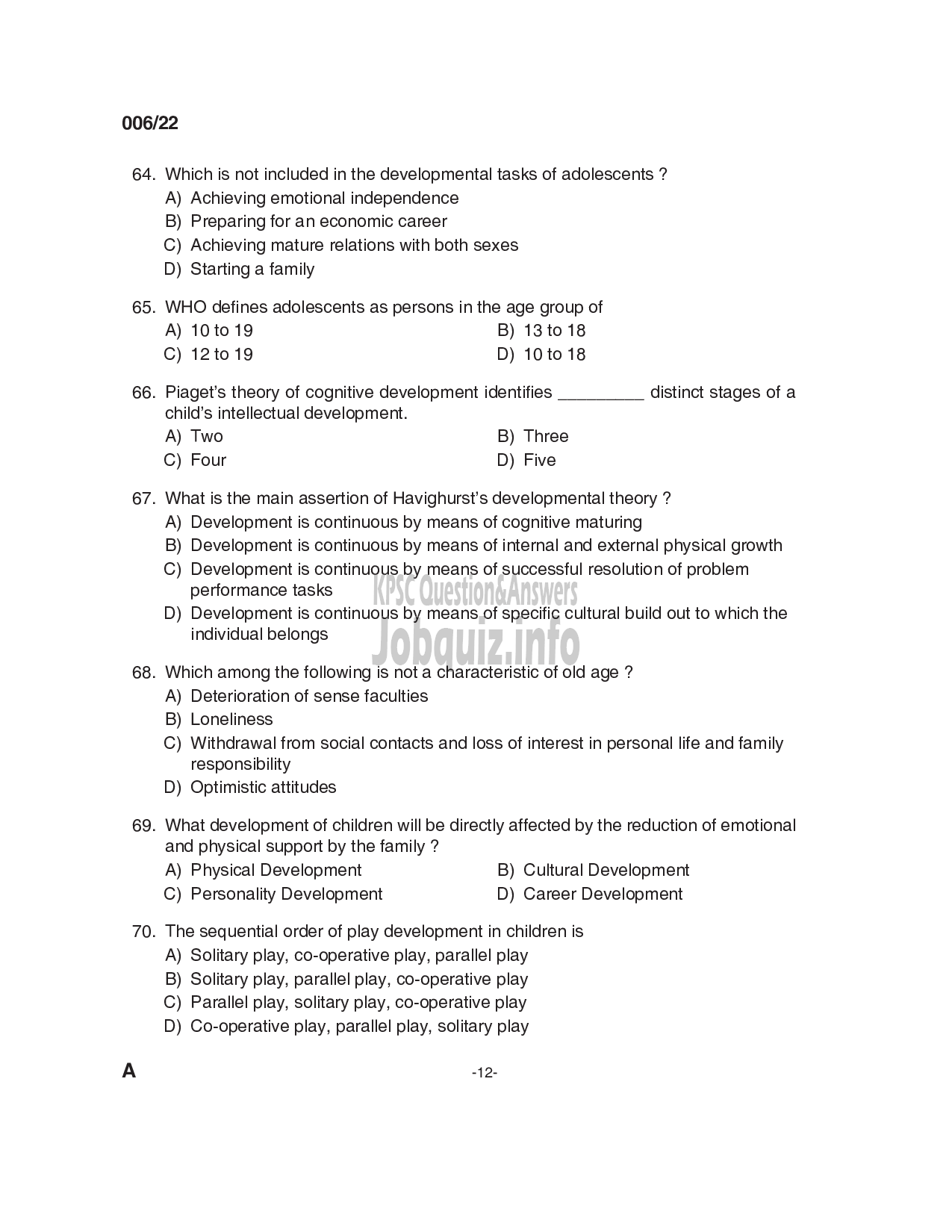Kerala PSC Previous Years Question Paper & Answer
Page:12
Below are the scanned copy of Kerala Public Service Commission (KPSC) Question Paper with answer keys of Exam Name 'Receptionist - Medical Education Services ' And exam conducted in the year 22. And Question paper code was '006/22'. Medium of question paper was in Malayalam or English . Booklet Alphacode was 'A'. Answer keys are given at the bottom, but we suggest you to try answering the questions yourself and compare the key along wih to check your performance. Because we would like you to do and practice by yourself.
006/22
64.
65.
66.
67.
68.
69.
70.
Which is not included in the developmental tasks of adolescents ?
A) Achieving emotional independence
B) Preparing for an economic career
C) Achieving mature relations with both sexes
D) Starting a family
WHO defines adolescents as persons in the age group of
A) 10 to 19 B) 13 to 18
௦) 9 D) 10 to 18
Piaget's theory of cognitive development identifies distinct stages of a
child’s intellectual development.
A) Two B) Three
C) Four D) Five
What is the main assertion of Havighurst’s developmental theory ?
) Development is continuous by means of cognitive maturing
) Development is continuous by means of internal and external physical growth
) Development is continuous by means of successful resolution of problem
performance tasks
D) Development is continuous by means of specific cultural build out to which the
individual belongs
Which among the following is not a characteristic of old age ?
A) Deterioration of sense faculties
B) Loneliness
C) Withdrawal from social contacts and loss of interest in personal life and family
responsibility
D) Optimistic attitudes
What development of children will be directly affected by the reduction of emotional
and physical support by the family ?
A) Physical Development B) Cultural Development
C) Personality Development D) Career Development
The sequential order of play development in children is
A) Solitary play, co-operative play, parallel play
B) Solitary play, parallel play, co-operative play
C) Parallel play, solitary play, co-operative play
D) Co-operative play, parallel play, solitary play
-12-
